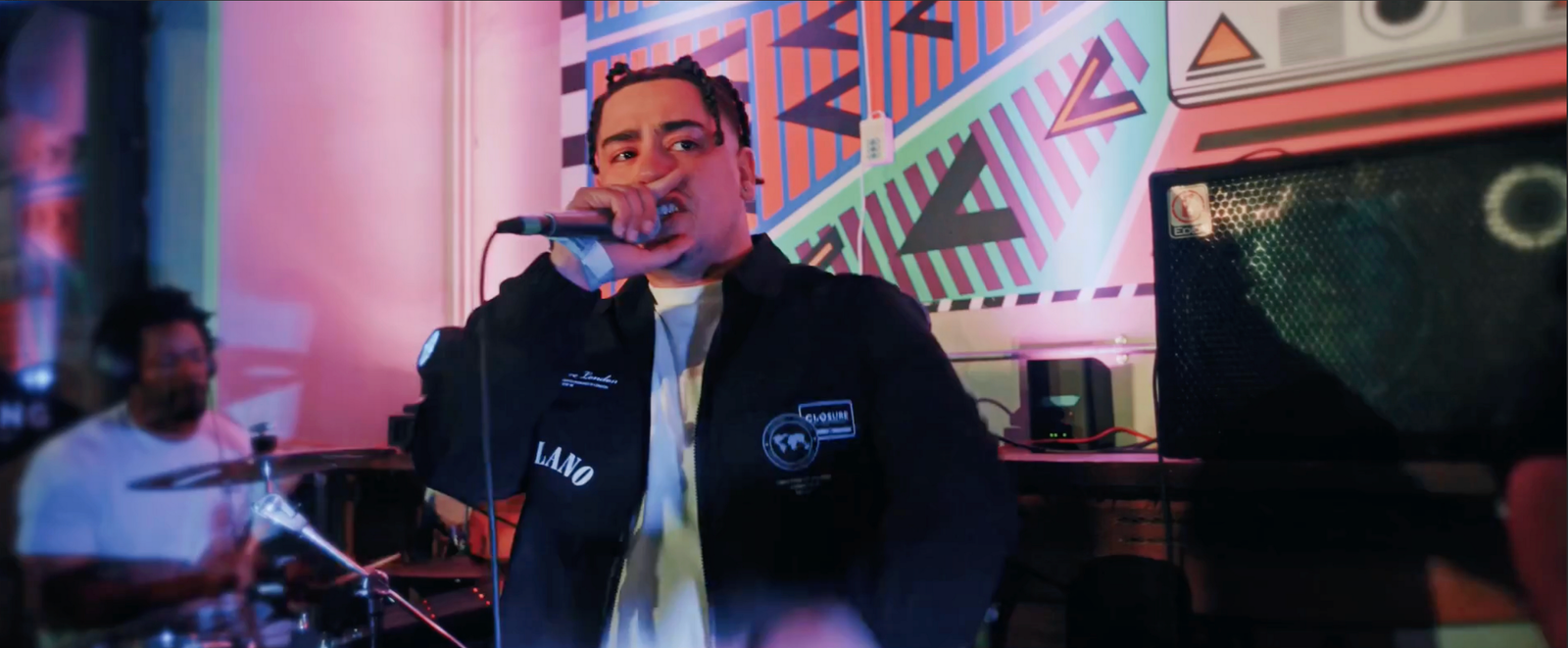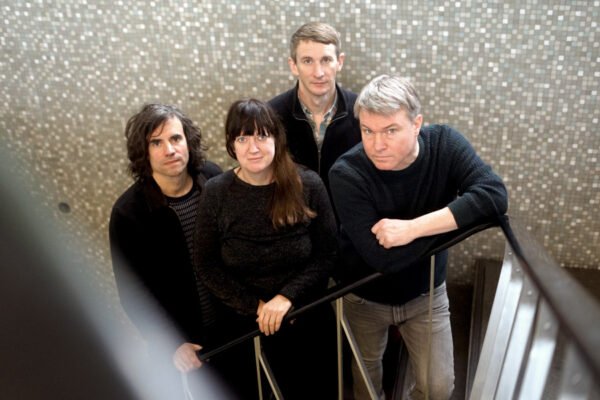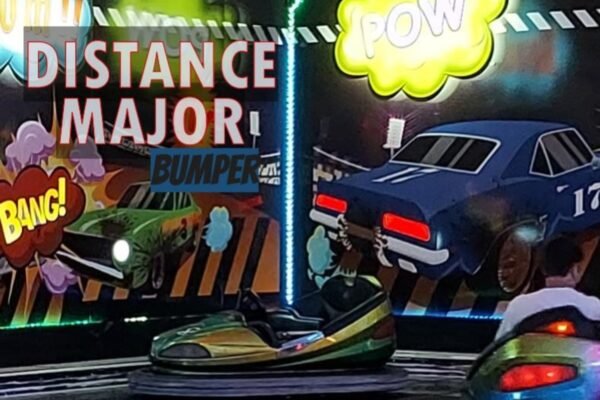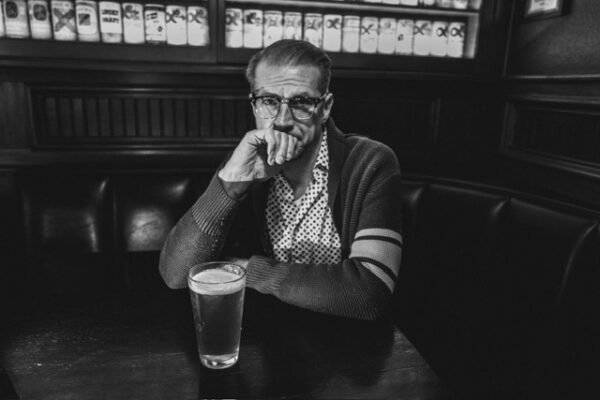Q1: “POW” has such a raw, high-energy feel. When you first laid it down, what was running through your head?
A: The idea for POW first came to me as a statement — a stamp to show my position in the Welsh music scene. But as the project developed, I realized it was bigger than me. It became an outlet for everyone who feels overlooked, underestimated, and unsupported, even while being the biggest supporter of others.
Sometimes, when you lead, you won’t have the backing you expect. You need resilience and power to break through. That mindset was with me the whole time — I wanted my raw energy and hunger to cut through every track.
Q2: The track feels like it was made to rattle speakers at 2 a.m. Where do you picture people playing this song the most?
A: The lead single POW is about self-empowerment. Whether you’re cruising late at night, in the gym, or even just out shopping, I wanted listeners to feel like they’re the best thing since sliced bread while singing along.
POW stands for Prince/Princess of Wales — it’s royal energy mixed with street culture. It’s about knowing your worth and never settling for less. That same energy runs through the whole project, especially tracks like DLM, Live, and BANG.
Q3: Your delivery on “POW” is unapologetic, almost like you’re kicking a door down. Did you approach recording this track differently than your earlier ones?
A: Definitely. This project gave me the chance to channel a different kind of energy — gritty and street, but still with class. That’s who I am. With POW, I feel like people can finally hear my full sound in action.
Q4: Cardiff isn’t always the first city people think of when it comes to rap, but you’re putting it firmly on the map. How much does your hometown shape your sound?
A: Cardiff isn’t the first place people look for rap — in fact, it’s usually the last. But there’s so much talent here. My story, my experiences, and my life as a mixed-race boy from a small city carry a lot of weight and give me a unique sound you don’t often hear on the radio.
Q5: You’ve been compared to artists from both the UK and US scenes. Do you feel more inspired by the grit of UK rap or the polish of US hip hop?
A: I’d say both equally shaped me. I grew up on US golden-era hip hop as well as the rise of UK grime. That mix gave me a unique musical ear. My generation has the best palette — we’ve got old school, new school, UK, and US influences all at once. That blend is what makes me different.
Q6: You’ve got this crazy stage background from dancing with Jukebox Juniors as a kid. Do you think that performer’s instinct gives you an edge when you’re rapping or shooting videos now?
A: Yes! As a kid, I was really shy, but Jukebox Juniors changed that. Performing on TV, film, and in front of thousands gave me confidence and stage presence early. On camera, it helps me carry myself with more dominance and tap into different characters instantly.
Dancers also hear music differently — we break down every detail to use in movement. That trained my ear to find pockets in beats, which I think gives me a big edge over other artists.
Q7: Your lyrics often carry that underdog energy. Who or what fuels that hunger for you?
A: My city, my haters, and my supporters. Cardiff gets overlooked — people don’t expect rap to come from here. But the talent here is incredible, better than some of the names in the charts. That motivates me to push harder until Cardiff and Wales are known for more than Tom Jones, rugby, and sheep.
Q8: You’re not just about the music, you’re teaching, boxing, playing sports, even eyeing acting. How do you balance all these creative lanes without burning out?
A: Creativity is my passion — it’s what I was put on this earth to do. But staying healthy is just as important, because it makes me a better performer when it’s time for world tours. I’ve always loved sports and the gym. I’m competitive, and I channel that energy into both my health and my art.
Teaching the youth is also a huge passion of mine. If I can inspire them through dance and music, get them off the streets, and help them find something positive — that’s a life saved. That fulfills me.
And of course, I make time for gaming too. (laughs)
When I feel close to burnout, I travel. There’s inspiration everywhere. And if I ever lose motivation, I look at my bank account — there’s still work to do.
Q9: TikTok played a role in one of your earlier breakout moments. Do you think social media has become just as important as the music itself for artists coming up today?
A:
Honestly, sometimes it’s even more important than the music. The good thing is there are no more gatekeepers — anyone can build a global community. But the flip side is you’re not just competing with musicians anymore. You’re up against meme pages, fitness influencers, motivational speakers — everyone fighting for attention on the For You Page.
So yeah, it’s hard work now. You need great music and great social media. If you’re not willing to put that effort in, this life probably isn’t for you.
Q10: With “POW” now out in the world, what’s next for you in the rest of this year? More singles, shows, maybe something bigger?
A:
POW was a big success — once one of the tracks hit 100,000 streams, I’ll be dropping a video for that. I’m also planning a groundbreaking POW event for my supporters — my “POWers.”
Right now, I’m in the studio making new music. I’m not sure yet if it’ll become another full project or just singles, but I can promise this: there’s more music coming this year and rolling into the next.
Listening to songs so you don’t have to! Just kidding :D, you totally should. Music blogger by day, nurse by night





